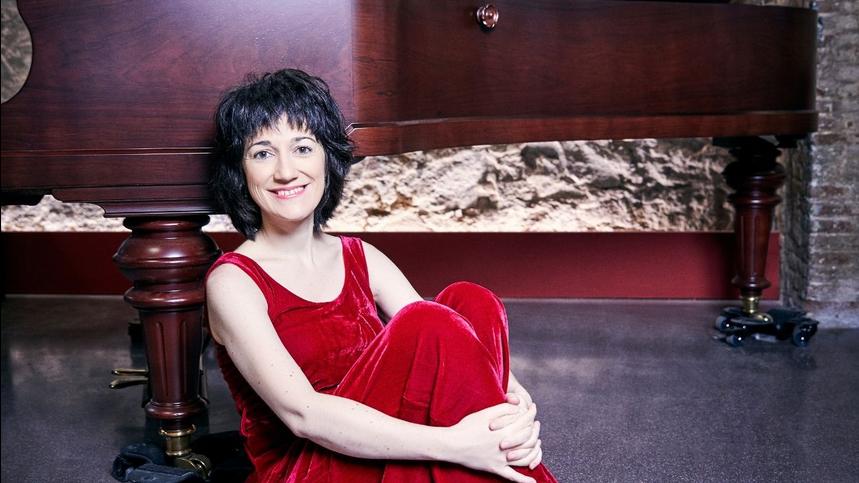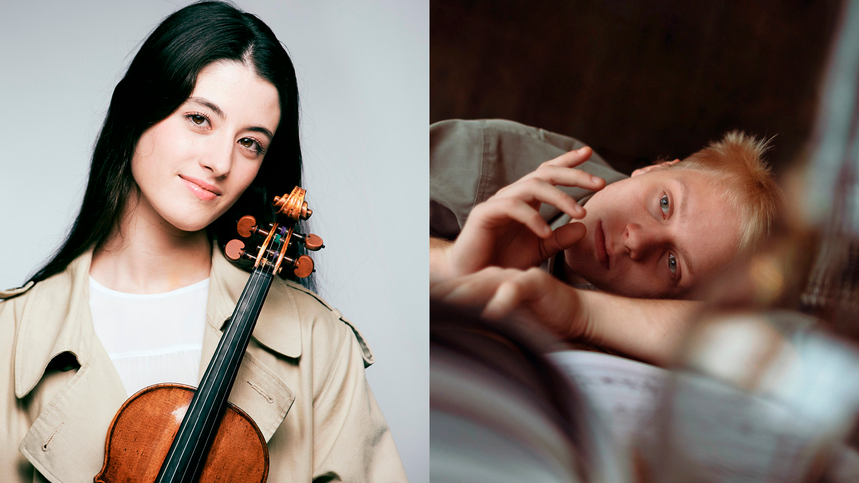
Cor de Cambra del Palau, Júlia Sesé & Xavier Puig
—Premiere by Gabriela Ortiz
- La Casa dels Cants
- Barcelona Obertura Ciutat de Clàssica
21March2026
Saturday
18:30
Petit Palau Hall

Born into a family of musicians in Mexico City, Gabriela Ortiz has always felt that she didn’t choose music — music chose her. The daughter of two of the founders of Los Folkloristas, a renowned ensemble dedicated to performing Latin American folk music, Ortiz played the charango and guitar while learning classical piano. She began her studies with renowned Mexican composers Mario Lavista, Federico Ibarra, and Daniel Catán. She then continued her education in Europe, earning a master’s degree from the Guildhall School of Music and Drama and a doctorate in composition and electronic music from London’s City University.
Under the direction of Gustavo Dudamel, the Los Angeles Philharmonic has commissioned and premiered seven works by Ortiz, including the ballet Revolución diamantina, which won three Grammy Awards in 2025, and the violin concerto Altar de cuerda, which was performed at the Palau last year with María Dueñas. Dudamel, a strong advocate for Ortiz’s music, says: “Her ability to bring colors, to bring rhythms and harmonies that connect with you is something truly unique.”
Ortiz’s music stands out for its incorporation of seemingly disparate musical worlds, from traditional and popular languages to avant-garde techniques and multimedia works — a clever fusion of diverse sonic realms. Her scores for dance, film, and theater often explore contemporary issues such as environmental concerns, racism, sexism, and globalization. But her work also features themes deeply rooted in Mexican culture, such as the veneration of the dead and the various rituals and celebrations that enrich the nation’s identity. These elements reflect the wide-ranging influences that have shaped Mexico over time: a country born of ancient pre-Hispanic civilizations like the Maya and the Aztecs, transformed by Spanish colonial conquest, and shaped further by American influences following its independence — resulting in a folklore, set of rituals, and cultural identity that is truly unique and diverse.

Cor de Cambra del Palau, Júlia Sesé & Xavier Puig
—Premiere by Gabriela Ortiz
21March2026
Saturday
18:30
Petit Palau Hall

30March2026
Monday
19:30
Petit Palau Hall

Ortiz, Márquez and Ginastera
—Orquestra Simfònica del Vallès & Salado
11April2026
Saturday
18:30
Concert Hall

17April2026
Friday
20:00
Concert Hall